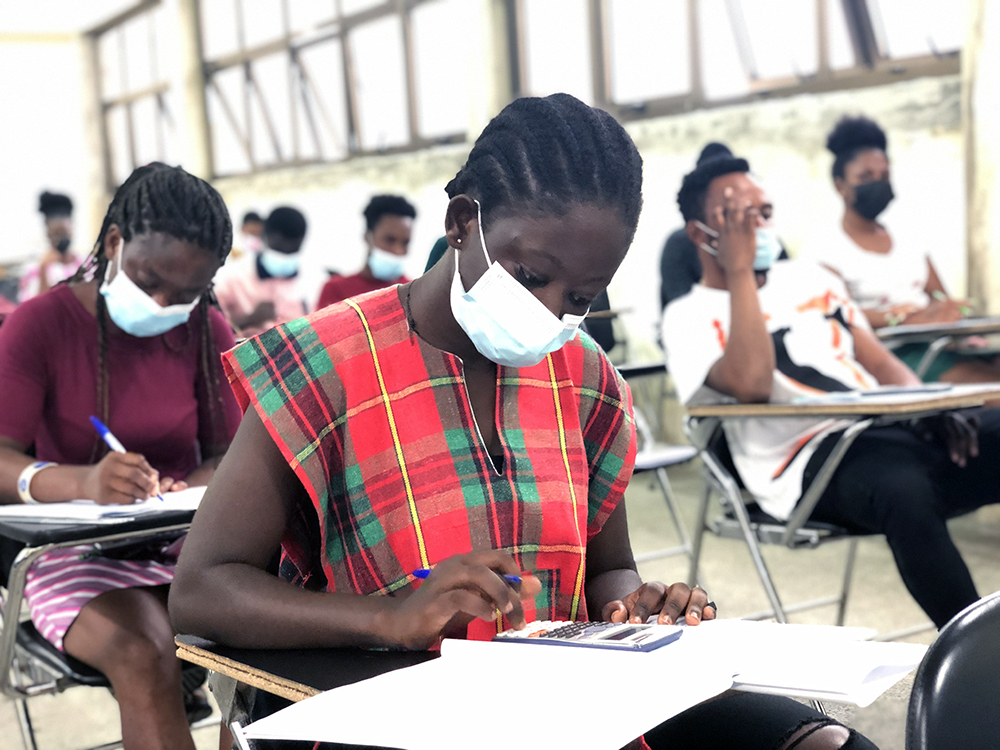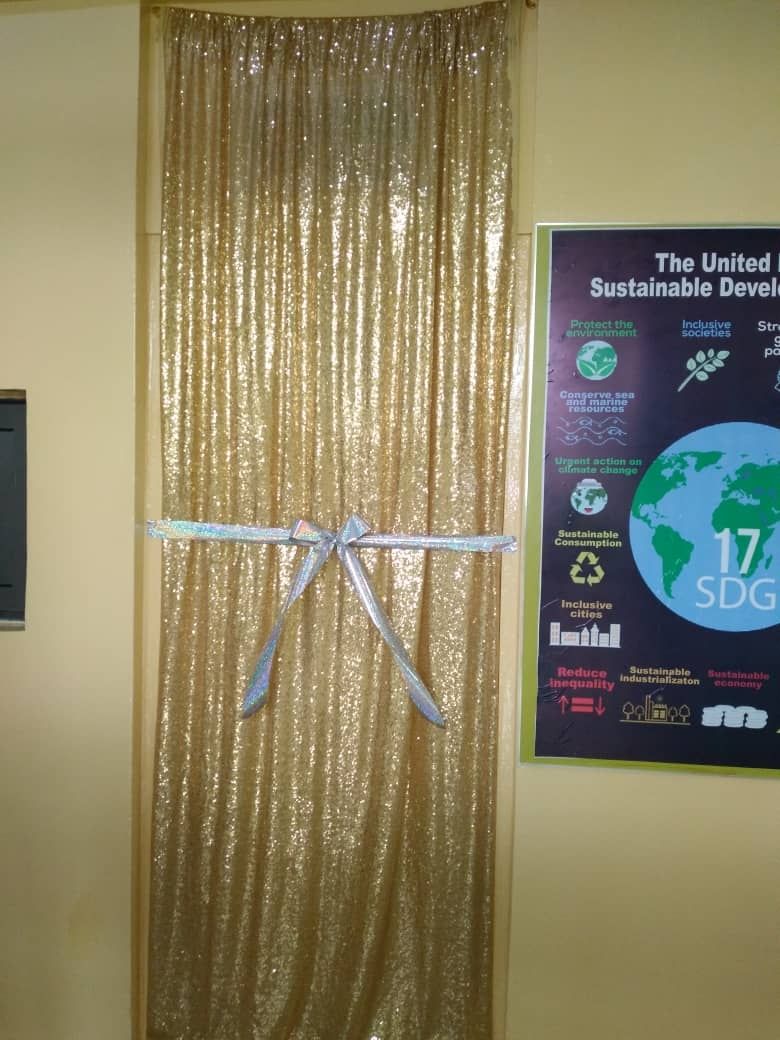
Previous Teaching Timetable For The Second Semester 2021-2022 Academic Year
The new centre according to the Head of FBNE, Dr Prince Boateng is aimed at “improving the integration of sustainable development principles and concepts in all facets of the built and natural environment by providing timely, unbiased information on policy, technology, designs, and operational techniques to enhance the environment, society and the economy”.
The centre which is the first of its kind in the Eastern Region and the country at large was launched last Friday at the Abba Bentil auditorium on the KTU campus during a short ceremony under the theme; “Towards Achieving the Sustainable Development Goals by 2030”.
Gracing the occasion were Professor Clinton Agbavioboa (Director of Sustainable Human Settlement and Construction, Research Centre – University of Johannesburg), Madam Joyce Larnyo (Co-Chairperson Ghana Civil Society Organization on SDGs), Dr Emmanuel Margo (Chairperson of Empowerment, Science and Technology Committee of Parliament and Member of Parliament for Oforikrom), Mr Davis Opoku Ansah (Deputy Ranking on Public Accounts Committee and Member on Water, Works and House Committee and MP for Mpraeso), Professor David Kofi Essumang (KTU Vice Chancellor), Professor John Owusu (Pro-Vice Chancellor -KTU) and Dr Prince Boateng (Dean of FBNE) among others.

Africa housing deficit
Addressing the gathering, Professor Clinton Aigbavboa lamented housing deficits currently being experienced across Africa; adding that the centre would help to advance research to create sustainable housing in Ghana and in Africa in general.
“Africa needs over 16 million adequate houses for the urban poor. Considering the role of the centre, it will try to bridge that particular urban divide. The role of research, policies with definitions are critical to the creation of housing for the rural poor and urban poor within the context of Africa. I believe that the centre has the ample opportunity to come up with new models and new frameworks of how to be able to create sustainable housing. At the moment in most African countries, the urban poor are made to build houses by themselves; so government can look at opportunities to actually find and implement new models in a subsidised approach through a particular resource channel,” he said.
He urged politicians, policymakers and think tanks to sit at a common table to find the way forward on the protection of the nation’s natural resources and protect the environment as part of the effort to attain the SDGs.
Reform
In an interview with the Daily Graphic, the Vice Chancellor of KTU, Professor David Kofi Essumang called on the government to preserve wetlands in order to protect water bodies in the country.
“Government must buy all wetlands to prevent their pollution. People are dumping refuse into wetlands and it’s not healthy for water conservation. If we don’t take care, we will soon be importing water,” he said.
He emphasised the need for educational reform which will help school pupils and the youth to own their environment in order to protect and preserve our environment to attain development sustainability related to the environment.
Professor Essumang added that there is a need for the employment of “indigenous methods of preserving the environment and construction purposes to reduce the rate at which the environment is being exploited which affects the quality of our environment. Cement prices have increased; buildings we use cement to construct are collapsing more than the days we had mud houses”.
Commitment
Chairperson of the Empowerment, Science and Technology Committee in Parliament, Dr Emmanuel Margo indicated the government’s preparedness to work with CenSud; adding that the government needed evidence-based research to be able to measure its progress with respect to the SDGs achievement to design measurable policies.
On the destruction of the environment, Dr Margo indicated that the offices of institutions such as the Lands and Forest Commission and Minerals Commission in the hinterlands needed to be well-resourced to enable them to enforce the laws in collaboration with security services work. He said that these institutions located in the hinterlands are mostly affected by illegal mining and illegal chainsaw operations, rather than their headquarters, therefore, vehicles and equipment which are kept at headquarters would be of less help.